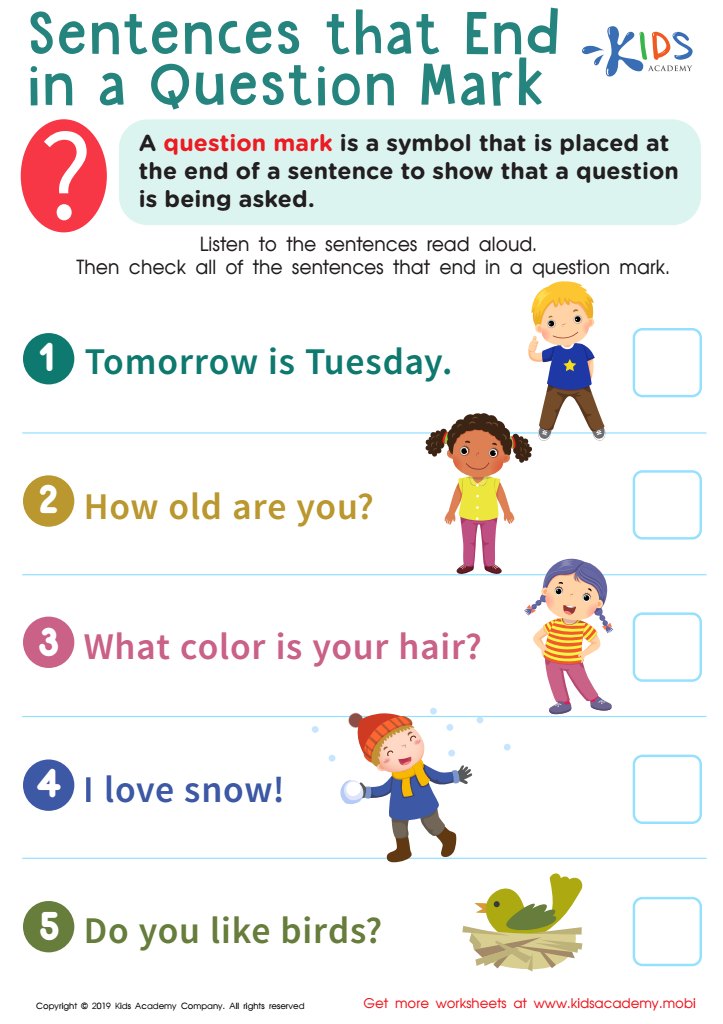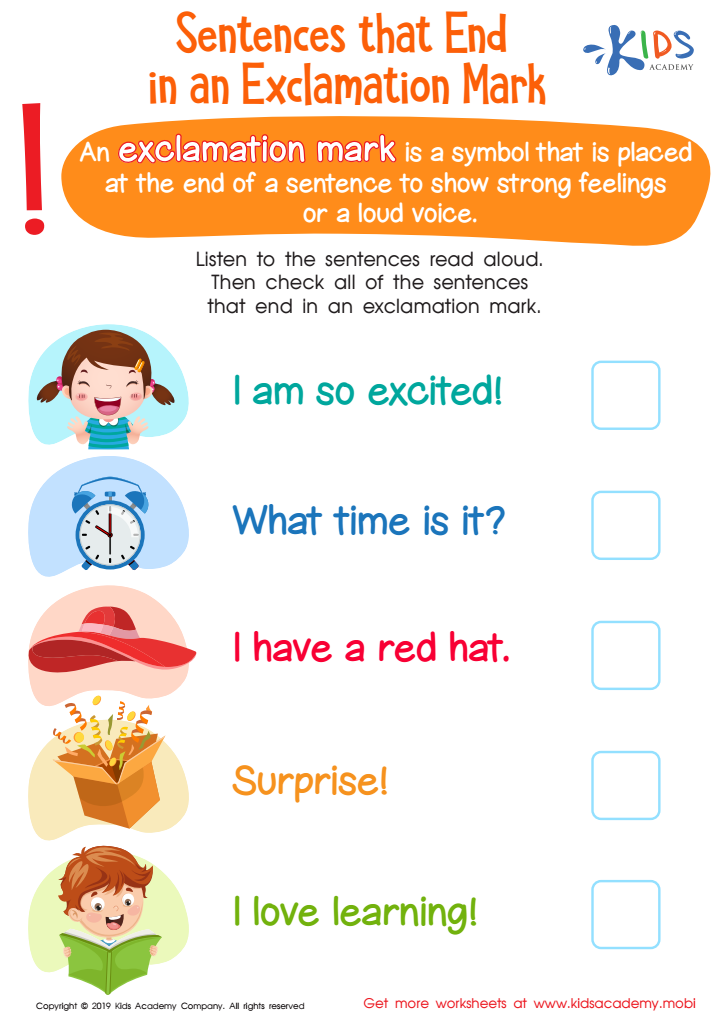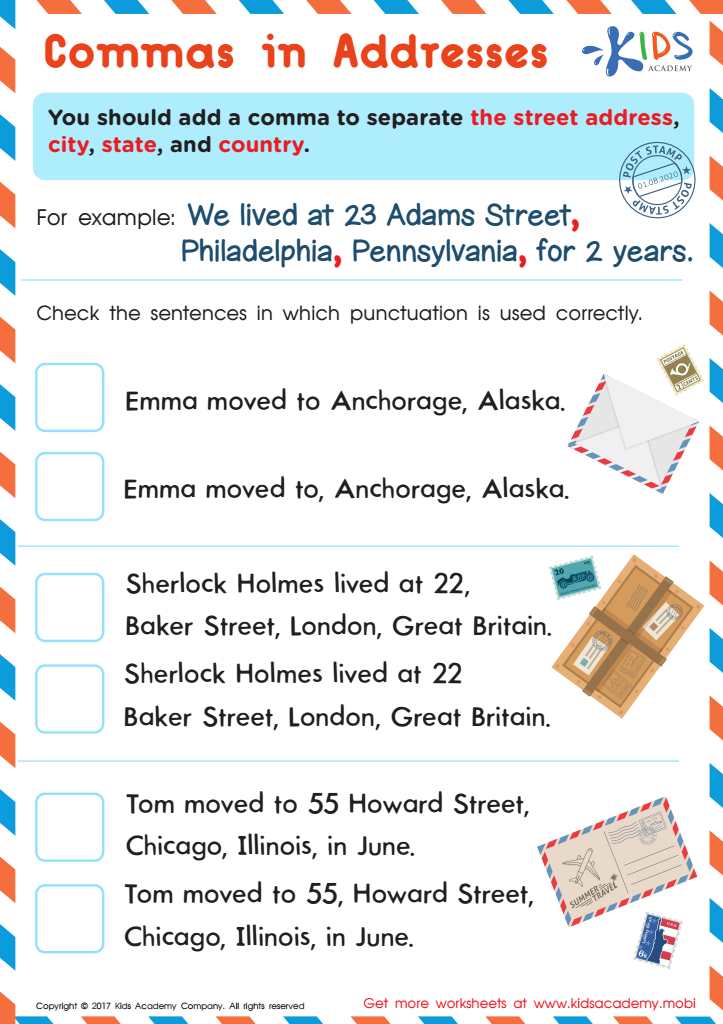Understanding punctuation Punctuation Worksheets for Ages 3-9
3 filtered results
-
From - To
Unlock the world of punctuation with our engaging "Understanding Punctuation" worksheets designed specifically for children ages 3-9! These interactive resources provide a fun and effective way to teach young learners the basics of punctuation marks, including periods, commas, question marks, and exclamation points. Through colorful activities and exercises, kids will improve their writing skills while gaining confidence in using punctuation correctly. Our worksheets cater to various learning styles, making it easy for parents and educators to track progress. Explore our collection today and lay a strong foundation for effective communication in your child's writing journey!


Sentences That End in an Question Mark Worksheet


Sentences That End in an Exclamation Mark Worksheet


Commas in Addresses Worksheet
Understanding punctuation is crucial for children ages 3-9 as it lays the foundation for effective communication and literacy skills. For parents and teachers, fostering an understanding of punctuation can significantly enhance children's reading and writing abilities. At this formative age, children begin to learn the basics of how words combine to express ideas, emotions, and narrative structures.
Punctuation marks such as periods, commas, question marks, and exclamation points serve as signposts that help young readers navigate text. They indicate pauses, differentiate between statements and inquiries, and add emotion to writing. When children grasp these concepts, they can better interpret the intended meaning of sentences, facilitating a deeper comprehension of what they read.
Moreover, understanding punctuation is essential for writing clarity. As children express themselves through writing, proper use of punctuation allows their ideas to flow logically and be easily understood by others. Parents and teachers play a vital role in reviewing punctuation in children's work, offering guidance and correction. Such engagement not only builds confidence in young learners but also fosters a love for language, setting them on a path toward successful communication skills in the future.
 Assign to My Students
Assign to My Students















